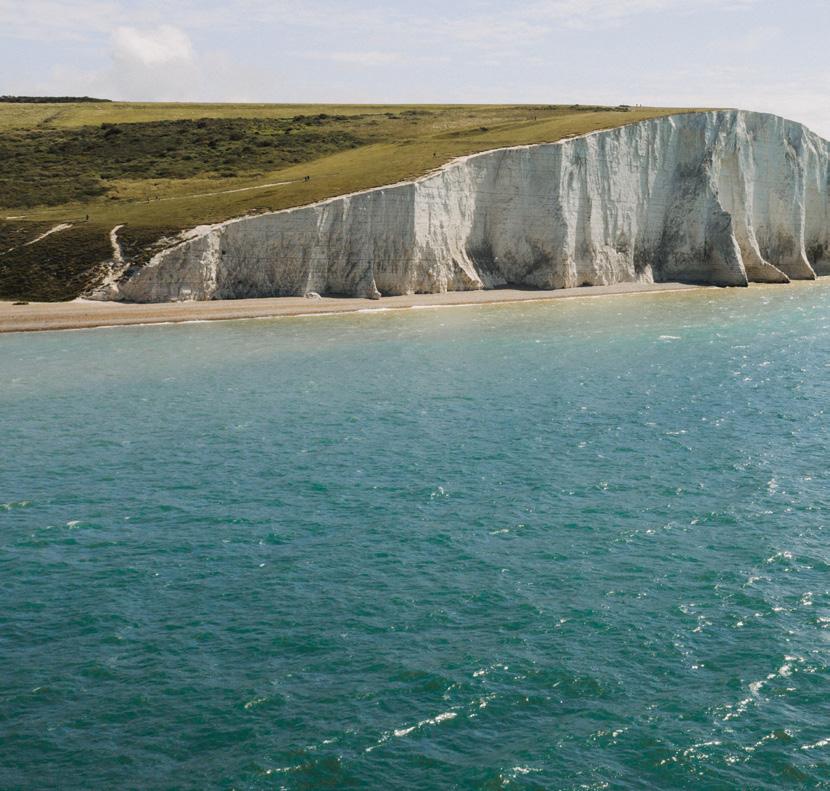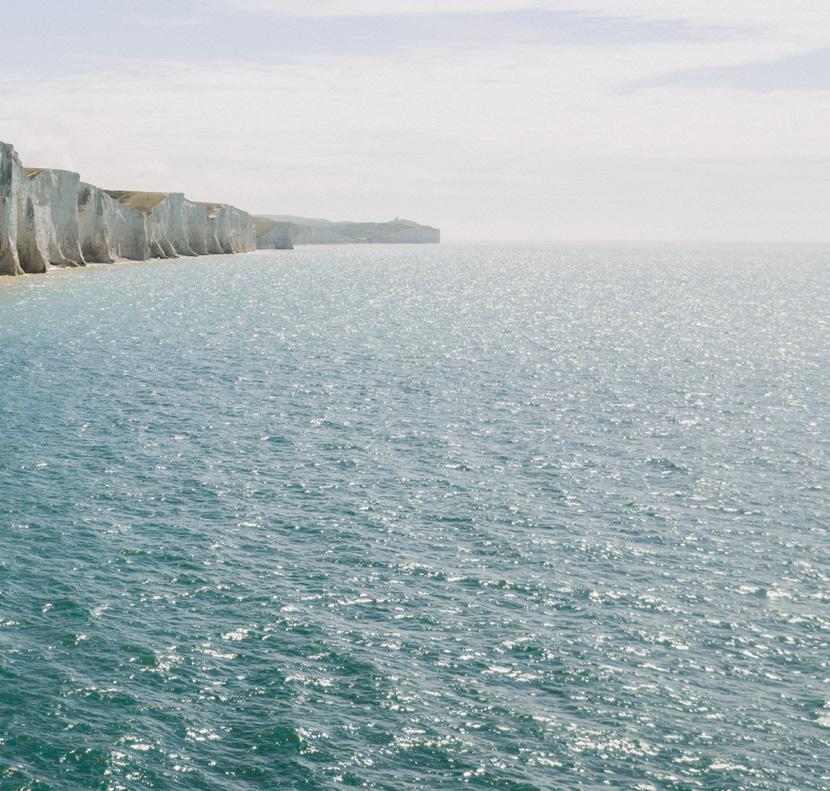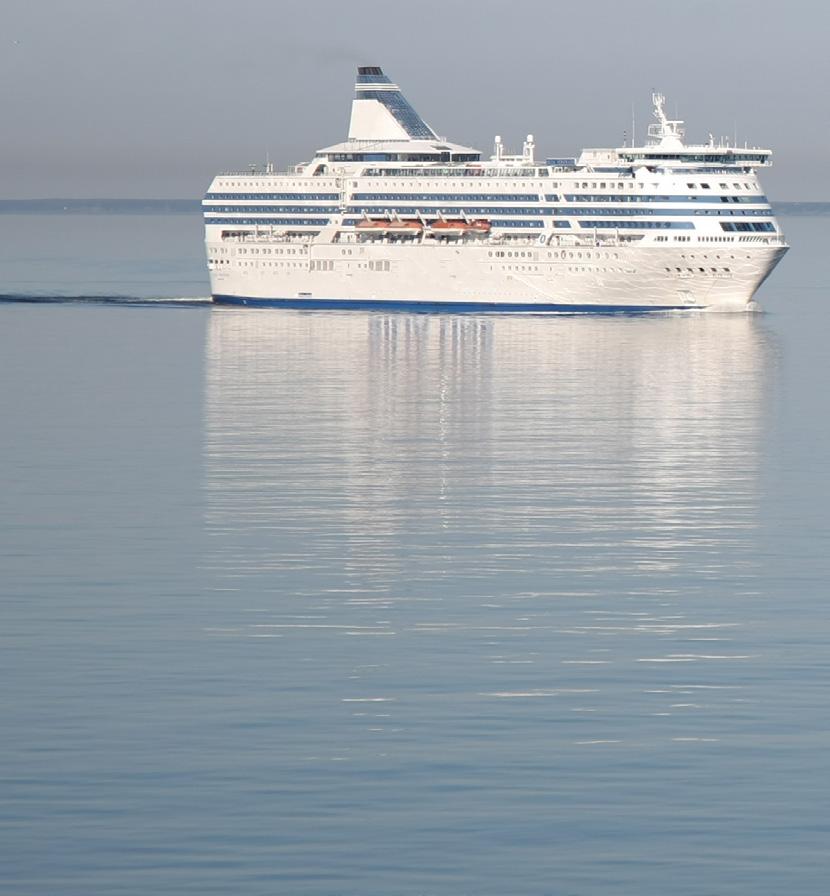
9 minute read
Meanwhile, across the channel...
ACROSS THE CHANNEL… MEANWHILE,

Advertisement
London calling, the fog is closing in fast. Berlin, do you still read me? Michael Wilson turns the spotlight onto the EU and considers all the things they’ve got to worry apart from when, how or whether the UK finally leaves the bloc
Somehow, I’m not particularly surprised by the news that British voters are turning off their TVs whenever Brexit comes on the evening news – or that street interviewers are finding people who are prepared to say “oh, I don’t know, it might be a disaster for the next fifty years but let’s just it over with”. Because there are times when I get just as overwhelmed as anybody else by the sheer complexity of the Brexit mess.
As I write this, with the Westminster Parliament suspended, and with Boris Johnson angrily disputing the legality of the new law requiring him to request a Brexit extension if he can’t negotiate a deal with the 27 other member states (or perhaps go to prison), it all seems too bizarre to be really happening. And my mind simply boggles at the idea that a British PM might instigate a vote of no confidence in himself, so that he can be sacked and then reinstated after 31st October.
As a political drama, it’s vaguely reminiscent of Mel Brooks’s classic The Producers –a film about a theatrical pair of frauds who set up a deliberate box-office failure, only to watch it failing to fail, which then ruins them both. (And which lands them both in prison, by the way.)
So let’s hear at least half a groan of support for the 27 other EU members, who are having to put up with our complex constitutional crisis while also getting on with the urgent daily business of running their own economies and settling
their own crises. It isn’t the continentals’ fault that we’ve put them in this situation with our time-wasting and our internal wrangling - and, although a no deal Brexit would severely damage London’s financial dominance and drive much banking business off to Paris or Amsterdam, we do need to take a bit of responsibility for having put our neighbours in this position.
We also need to consider what would really happen if the EU27 declared that the camel’s back had been finally broken and that there was now no way back from a forced crash-out? There are, after all, 440 million people in the EU27, and only 66 million of us in Britain, of whom 4 million are EU nationals.
TRADE
Okay, we can very probably rule out the forced Brexit possibility – not least, because our European partners would stand to lose a huge amount of trade from a no-deal Brexit, and a concomitant drop in manufacturing output, particularly for Germany, which is already under the cosh from President Donald Trump over cars and engineering exports to the US.
It isn’t so very surprising that France’s President Emanuel Macron is currently making a fuss about the prospect of granting Britain another Brexit extension. On the one hand, he’s suffering a serious dose of the mid-term electoral blues (gilets jaunes protests, etcetera) and he needs to grandstand a little if he is to reinforce his flagging dominance in the domestic environment.
There’s also the fact, as we’ve noted, that France stands to mop up a good deal of financial business if the no-deal should happen, so there’s a genuine vested interest there. But the counterbalancing impact on French exports might be severe: France scores an annual £10 billion surplus over the UK, of which the food sector earns £3 billion and the wine trade another £1.2 billion. Losses in those areas would cost Macron’s provincial constituencies heavily.

GERMANY
But not as heavily as Germany, whose manufacturing output fell by 5.3% year-on-year during the second quarter of 2019 because of the combined forces from Brexit, Donald Trump’s threatened trade tariffs, and a general slowing of global growth. Which is why Chancellor Angela Merkel will be leaning heavily on M. Macron to stop rocking the boat.
That 5.3% manufacturing downturn in Q2 was significantly worse than the 2% average industrial downturn for the 19 Eurozone countries – and it probably reflected a Eurozone-wide 7.5% annual drop in car production, as well as a 3% drop in the group’s capital and intermediate goods. Overall, the Financial Times reckoned in mid-September, G7 countries have seen their investment levels dropping by half since the heady days of 2007.
This is, of course, just another way of making the point that Brexit isn’t the only cause of Europe’s economic unease at the moment. Far from it. Yet, if that thought offers us a little bit of national consolation, it also underlines the fact that the EU has one or two bigger fish to fry than the UK these days. Suddenly, Boris Johnson’s confident assertions that Italian prosecco sellers and German car manufacturers would soon bend to Britain’s iron will seem both partially relevant, and partially not very relevant at all…..
GROWTH, AND WHAT TO DO ABOUT IT
What does seem apparent is that the EU would be cutting off a sizeable part of its own nose if it decided to spite Britain’s face with a forced no-deal Brexit while we were asking for more time. International Monetary Fund estimates seem to suggest that the EU might lose as much as $250 billion a year – close to 1.5% of its total gross domestic product – if a satisfactory Brexit transition couldn’t be arranged. And a loss of up to 1% of the bloc’s jobs.
The impact will be variable, however. At present, Spain and (to a lesser extent) France are showing no great impact from either Brexit, or indeed from anything else – their overall economic output seems to be holding relatively firm compared with their industry-heavy contemporaries. The real loser is expected to be Ireland, which is projected to shed 7% of its expected growth between now and 2030 if no adequate settlement can be attained.
But there I go again, focusing on the B-word. Sorry about that. What else is there to talk about?
CHINA AND THE EURO
Whisper it quietly, but the issue that the European Research Group hasn’t identified yet is that the continent’s trade with China is as important as with the US, and rapidly becoming more so. In 2018, according to Eurostat, the US imported 21% of the EU’s goods (including Britain’s, of course), and it supplied 13% of the EU’s imports. But, apart from a handful of non-UK states (including Ireland) which do more than half of their trade with Washington, the developing opportunity is with China.
Beijing, according to Eurostat, is the EU’s second largest export customer, taking 11% of its non-EU exports, and its biggest supplier, accounting for a massive 20% of its non-EU imports. That’s half as much again as the United States. And the EU’s trade deficit with China has been ballooning – to 77 billion euros in the first five months of 2019, compared with 69 billion euros a year earlier.
On the other hand, Europe’s trade surplus with the United States grew to 69 billion euros over the same five-month period, compared with 55 billion euros a year earlier. That suggests (to me, anyway) that there might conceivably be some debateable substance to President Trump’s complaint that Europe (by which he means mainly Germany) has been “unfairly” disadvantaging the US in some indefinable way. (The Prez says that Berlin is steering the euro downward, something which it patently can’t do since it’s only one of 19 Eurozone nations. But that’s another story.)

What it does seem to mean, though, is that the recent growth slowdown in China can’t be easily ignored, any more than the freakishly strong expansion in the United States can. It’s too early to say for sure what all this means, but if China reduces its imports from the EU then the impact on EU economic growth is likely to be more serious than we tend to assume on this side of the English Channel.
NATIONALISM
Not so much an economic matter, unless you expect European states to go the way of Turkey, but the modern resurgence of populist nationalism is as much of a worry for the Eurozone as anything that Boris Johnson’s anglocentric cohort can throw at it.
From Italy to Hungary, from the Baltics to Catalonia, the growth of simplistic “ethnic” tribalism is damaging European states in ways that would scarcely have seemed possible a decade ago. On the positive side, the rising dominance of a cultish autocrat with his roots in the 19th century (we’re looking at you, Viktor Orban) is unlikely to deflect foreign investment unless it becomes too poisonous, or antisemitic, or whatever, because production costs do matter to today’s manufacturers. But if the separatist chant becomes too loud, as in Ukraine or in parts of Spain, then economic development may be shaped in ways that may be hard to predict.
If you’ve noticed Spain taking a hard line on issues like Gibraltar recently, it isn’t only protesting at Britain’s sovereignty over the rock. Spain’s government is petrified that nationalist regions such as Catalonia or the Basque country might follow the example of Scotland and press for a vote to secede from the Spanish state – with horrible results for the nation, since Catalonia happens to have one of the healthiest per capita incomes in the country.
But we digress. (So what’s new?) A more pertinent approach would be to look at Italy, whose northern and nationalist minorities are cocking a governmental snook at both the voters and their European partners, especially the Germans.
Or rather, it did until last month. September saw the defeat of Europe’s first truly nationalist/populist government, in a development that we’re still analysing. For two years, a populist right-wing movement driven by Northern League leader Matteo Salvini had been setting its face against every EU rule you could possibly imagine, including the need to run a balanced budget and to behave co-operatively toward the rest of the 27 (or 28).
But it all ended after Salvini tried to topple the (relatively moderate) prime minister Giuseppe Conte, and fluffed it badly. Whereupon his populist allies, the 5 Star Party of comedian Beppe Grillo, promptly decamped to form a powerful coalition with the centre-left Democratic Party instead, and a new and more co-operative alignment with Europe was suddenly born.
If all that sounds to you more like Puccini than proper politics, then you’re not alone. Italy is still railing against the indignity of being required to follow the same economic rules as prosperous Germany, but the gloves have been put back on, and there’s a prospect of harmony for the time being at least. It’s just another reason why Europe’s politicians have more on their agendas right now than dealing with whether or not Boris Johnson lied to the Queen.
STIMULUS FROM THE ECB
And so to the hot news that was hitting the airwaves just as this review went to press. On 12th September the European Central Bank declared, from its Frankfurt headquarters, that it was taking action to restart the stalled motor of European growth.
On the one hand, the ECB said, it was reducing the central bank deposit rate from minus 0.4% to minus 0.5% (yes, you heard that right), so that borrowers could, in theory, expect to get paid for taking on loans. On the other, it was restarting the €2.6tn quantitative easing programme that it had stopped last December, with a renewed commitment to buying back €20bn of bonds every month from November 2019.
That, according to the departing ECB president Mario Draghi, was because the eurozone faced “more protracted weakness” than previously thought, mainly because of the aforementioned global trade slowdown. According to the Financial Times, the ECB had cut its 2019 forecast for growth in the 19-member single currency zone by 10 basis points to just 1.1 per cent, and by 20 bps to 1.2 per cent for 2020. Gosh, that almost makes the UK look good.
It took President Trump all of half an hour to tweet that perfidious Europe was artificially reducing the value of the euro in yet another attempt to undermine America’s export potential. “And the Fed sits, and sits, and sits,” he added. “They get paid to borrow money, while we are paying interest!”.
By the time you read this, we’ll know whether the ECB’s fairly modest QE process can reflate the sagging tyres of the European economy. (Negative interest rates and bond yields are still not familiar enough to have predictable consequences.) And it wouldn’t be surprising if the Prez took the opportunity now to start another round of the trade war with the Europe that Britain is planning to leave. But, if nothing else, it might alert us to the possibility that Brussels just might have more on its hands than our own little constitutional crisis over here on this side of the Channel…



